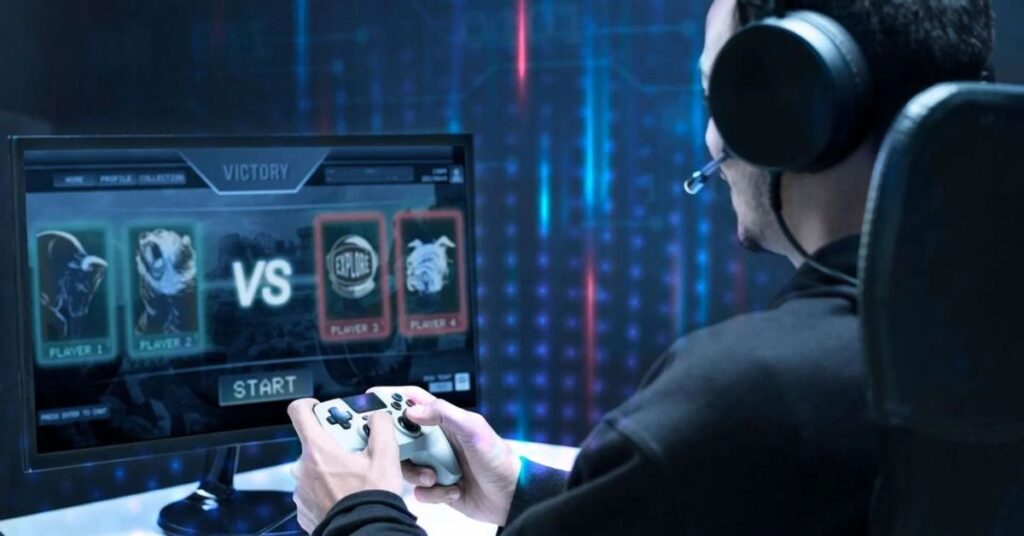In the rapidly expanding gaming universe, it’s not just about creating a good product when luring in new players. Gamers nowadays want titles that respond naturally and natively, regardless of their location. For those seeking to reach Spanish-speaking markets, particularly Spain and Latin America, language is merely half the challenge. Real engagement is derived from providing a game experience that’s native-sounding, one that resonates with local culture, tone, and sense of humor. This is exactly where gaming translation plays a critical role,making the experience feel truly local and engaging.Engaging a professional translation service like CCJK can be the difference in effectively and uniquely targeting this audience.
Why the Spanish Gaming Market Matters
The Spanish gaming market is one of the most dynamic and rapidly expanding markets globally. Latin America has over 300 million players, with Spain remaining a dominant European gaming hub. Revenues in the markets remain steadily increasing, driven primarily by mobile titles and supported by strong console and PC sales. The expansion has made the Spanish market a significant interest for global game developers. However, the majority of the top games are initially conceptualized in English. Inept or out-of-context translation of them does not produce the same emotional pull. Players quickly notice awkward phrases, technical mistakes, or text that feels out of place. It undermines brand reputation and can scare away players, even if the game works mechanically and is visually sound.
Understanding the Role of Gaming Translation
Translation for gaming is way more than just converting text. Translation for gaming entails the process of transposing in-game dialogue, menus, voice-overs, instructions, and narratives into the cultural expectations of the gamers. The process helps the end product to feel like it was specifically made for the target gamers, rather than translated for them.
Spanish is a regionally variegated language. To give an example, the Spanish spoken in Spain is vastly different from that spoken in Mexico, Colombia, or Argentina. Every dialect possesses specialized slang, idioms, and even grammar rules. Localization, if it is not done carefully, can make games sound unnatural. This may lower the fun factor for players or make it confusing. That’s why it’s imperative to employ a professional translation company with translators who are not only fluent in the language but also familiar with the gaming community as well as regional nuances.
How Professional Translation Services Help
To guarantee success in Spanish-speaking countries, most game developers rely on professional translation agencies. Professional translation agencies focus on making games compatible with various regions and cultures. They collaborate with skilled linguists who know gaming’s technical terminology and the local players’ cultural expectations. A professional translation agency such as CCJK doesn’t translate words but localizes whole gaming experiences. This involves keeping tone consistent, accommodating cultural references, reviewing visual content, and performing quality assurance testing. By selecting a well-versed partner, game developers can concentrate on creative and technical progress without worrying about the translation part of the game.
Spanish Gamers Expect More
Avid gamers of Spain and Latin America participate in online forums, post reviews, join live gaming communities, and follow game developers on social media. Their comments are quick, candid, and reach many people. This shows that a single poorly translated release can lead to swift backlash and player distrust. But when a game provides a local experience that is intimate and refined, the same players become devoted fans.They often recommend well-localized Spanish-language games to their peers, expanding the game’s reach organically. Exceeding gamers expectations is not just a matter of including a Spanish option on the menu. It is providing a full and well-considered experience in their language that provides an immersive gaming experience.
What to Look for in a Gaming Translation Partner
Not every translation service meets the specialised requirements of the gaming sector. In selecting a localization partner, game developers should first look for agencies with their track record of gaming-specialized translations. The best partner should
be familiar with platform-specific needs for consoles, PC, and mobile to ensure seamless integration.Moreover, they must have regional linguistic characteristics, like Latin American versus European Spanish differences, to provide real player experiences.Addationally, they can provide in-game testing features to check translations in context without UI problems or text overflow.Last not the least they can enable live updates, expansions, and DLCs through agile localization processes to match continuous content releases.
A prime example is professional translation agency CCJK offering full-cycle game localization solutions. From adapting core content to in-context testing and post-launch updates, CCJK works closely with developers to maintain the original tone, intent, and functionality across all localized releases.
Conclusion
The success of a game in Spain is not rooted in little Spanish text; it depends on a deep understanding of your audience’s language, culture, and gaming psychology. Poorly done translation frightens away players, damages your reputation, and restricts your game’s visibility. But properly executed, localization generates loyalty, boosts user satisfaction, and expands market coverage.
Professional translation agency CCJK provides the precision, cultural awareness, and uniformity needed to engage Spanish gamers. They transform flat translations into rich experiences that are naturally expressed and locally produced. By taking assistance of CCJK,developers can tap easily into Spanish gaming industry and also flourish their business.
Also Read: Equestrian Paralympics 2024 2024

